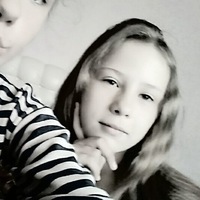
Open the brackets using the verbs in The Passive Voice 1) We (invite) to a picnic LAST WEEK. 2)
The tickets (buy) NEXT Monday. 3) The museum (visit) by tourists SINCE 1990. 4) The castle CAN (see) from a long distance. 5) Juice (make) from fruits (ALWAYS). 6) His car (repair) NOW. 0
0
 0
0
Ответы на вопрос
 Внимание! Ответы на вопросы дают живые люди. Они могут содержать ошибочную информацию, заблуждения, а также ответы могут быть сгенерированы нейросетями. Будьте внимательны. Если вы уверены, что ответ неверный, нажмите кнопку "Пожаловаться" под ответом.
Внимание! Ответы на вопросы дают живые люди. Они могут содержать ошибочную информацию, заблуждения, а также ответы могут быть сгенерированы нейросетями. Будьте внимательны. Если вы уверены, что ответ неверный, нажмите кнопку "Пожаловаться" под ответом.

Ответ:
1) We were invited to a picnic LAST WEEK.
2) The tickets will be bought NEXT Monday.
3) The museum has been visited by tourists SINCE 1990.
4) The castle can be seen from a long distance.
5) Juice is ALWAYS made from fruits.
6) His car is being repaired NOW.
 0
0
 0
0

To open the brackets using the verbs in the passive voice:
1) We were invited to a picnic last week. 2) The tickets will be bought next Monday. 3) The museum has been visited by tourists since 1990. 4) The castle can be seen from a long distance. 5) Juice is always made from fruits. 6) His car is being repaired now.
Explanation:
The passive voice is used when the subject of the sentence is the receiver of the action, rather than the doer of the action. In the active voice, the subject performs the action, while in the passive voice, the subject receives the action.
To convert these sentences into the passive voice, we need to identify the subject, verb, and object in each sentence, and then rearrange the sentence structure accordingly.
1) The subject is "We", the verb is "invite", and the object is "to a picnic". In the passive voice, the object becomes the subject, the verb is changed to its past participle form (invited), and the subject is preceded by the helping verb "were". So, the sentence becomes "We were invited to a picnic last week."
2) The subject is "The tickets", the verb is "buy", and there is no direct object. In the passive voice, the subject becomes the receiver of the action, the verb is changed to its past participle form (bought), and the subject is preceded by the helping verb "will be" to indicate future tense. So, the sentence becomes "The tickets will be bought next Monday."
3) The subject is "The museum", the verb is "visit", and the object is "by tourists". In the passive voice, the object becomes the subject, the verb is changed to its past participle form (visited), and the subject is preceded by the helping verb "has been" to indicate present perfect tense. So, the sentence becomes "The museum has been visited by tourists since 1990."
4) The subject is "The castle", the verb is "can see", and there is no direct object. In the passive voice, the subject becomes the receiver of the action, the verb is changed to its infinitive form (be seen), and the subject is preceded by the helping verb "can" to indicate ability. So, the sentence becomes "The castle can be seen from a long distance."
5) The subject is "Juice", the verb is "make", and the object is "from fruits". In the passive voice, the object becomes the subject, the verb is changed to its past participle form (made), and the subject is preceded by the helping verb "is" to indicate present tense. So, the sentence becomes "Juice is always made from fruits."
6) The subject is "His car", the verb is "repair", and there is no direct object. In the passive voice, the subject becomes the receiver of the action, the verb is changed to its past participle form (repaired), and the subject is preceded by the helping verb "is" to indicate present tense. So, the sentence becomes "His car is being repaired now."
 0
0
 0
0
Похожие вопросы
Топ вопросов за вчера в категории Английский язык
Последние заданные вопросы в категории Английский язык
-
Математика
-
Литература
-
Алгебра
-
Русский язык
-
Геометрия
-
Английский язык
-
Химия
-
Физика
-
Биология
-
Другие предметы
-
История
-
Обществознание
-
Окружающий мир
-
География
-
Українська мова
-
Информатика
-
Українська література
-
Қазақ тiлi
-
Экономика
-
Музыка
-
Право
-
Беларуская мова
-
Французский язык
-
Немецкий язык
-
МХК
-
ОБЖ
-
Психология
-
Физкультура и спорт
-
Астрономия
-
Кыргыз тили
-
Оʻzbek tili

























